Filter by

Experimental Methods of Shock Wave Research
This comprehensive and carefully edited volume presents a variety of experimental methods used in Shock Waves research. In 14 self contained chapters this 9th volume of the “Shock Wave Science and Technology Reference Library” presents the experimental methods used in Shock Tubes, Shock Tunnels and Expansion Tubes facilities. Also described is their set-up and operation. The uses of an arc …
- Edition
- -
- ISBN/ISSN
- 978-3-319-23745-9
- Collation
- 211 b/w illustrations, 232 illustrations in colour
- Series Title
- -
- Call Number
- -
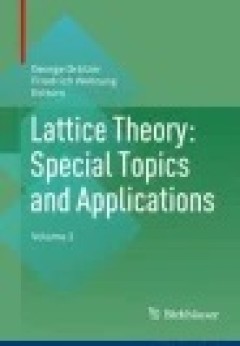
Lattice Theory: Special Topics and Applications: Volume 2
George Grätzer's Lattice Theory: Foundation is his third book on lattice theory (General Lattice Theory, 1978, second edition, 1998). In 2009, Grätzer considered updating the second edition to reflect some exciting and deep developments. He soon realized that to lay the foundation, to survey the contemporary field, to pose research problems, would require more than one volume and more than on…
- Edition
- -
- ISBN/ISSN
- 978-3-319-44236-5
- Collation
- -
- Series Title
- -
- Call Number
- -
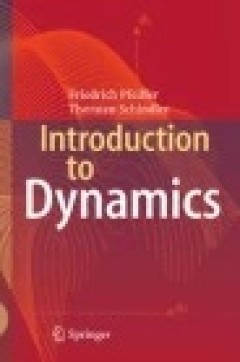
Introduction to Dynamics
This concise textbook for students preferably of a postgraduate level, but also for engineers in practice, contains the basic kinematical and kinetic structures of dynamics together with carefully selected applications. The book is a condensed introduction to the fundamental laws of kinematics and kinetics, on the most important principles of mechanics and presents the equations of motion in th…
- Edition
- -
- ISBN/ISSN
- 978-3-662-46721-3
- Collation
- -
- Series Title
- -
- Call Number
- -
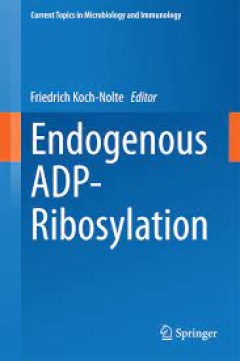
Endogenous ADP-Ribosylation
This volume gathers the latest exciting findings on ADP-ribosylation from renowned experts in the field. It includes ten chapters, organized into the following three thematic sections: · Evolution and detection of endogenous ADP-ribosylation · ADP-ribosylation by the ARTC family of ADP-ribosyltransferases (R-S-E ARTs) · ADP-ribosylation by the ARTD family of ADP-ribosyltransfe…
- Edition
- -
- ISBN/ISSN
- 978-3-319-10771-4
- Collation
- VIII, 213
- Series Title
- -
- Call Number
- -

The Vienna Circle : Studies in the Origins, Development, and Influence of Log…
This abridged and revised edition of the original book (Springer-Wien-New York: 2001) offers the only comprehensive history and documentation of the Vienna Circle based on new sources with an innovative historiographical approach to the study of science. With reference to previously unpublished archival material and more recent literature, it refutes a number of widespread clichés about "neo-p…
- Edition
- -
- ISBN/ISSN
- 978-3-319-16561-5
- Collation
- -
- Series Title
- -
- Call Number
- -
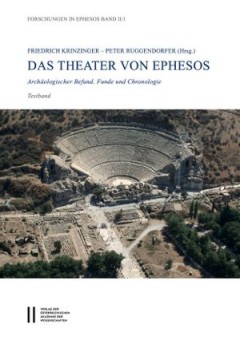
Das Theater von Ephesos. Archäologischer Befund, Funde und Chronologie, Text…
In this volume of the “Forschungen in Ephesos” the recent archaeological examinations at the Theater of Ephesus are published. Beside the results of the excavations the volume incorporates the analysis of the various find categories, such as pottery and glass, terracotta, sculptures, small finds, coins as well as archaeozoological and epigraphical finds. With this, the reader can comprehens…
- Edition
- -
- ISBN/ISSN
- 9783700175902
- Collation
- -
- Series Title
- -
- Call Number
- -

One Hundred Years of Chemical Warfare; Research, Deployment, Consequences
Introduction This book is open access under a CC BY-NC 2.5 license. On April 22, 1915, the German military released 150 tons of chlorine gas at Ypres, Belgium. Carried by a long-awaited wind, the chlorine cloud passed within a few minutes through the British and French trenches, leaving behind at least 1,000 dead and 4,000 injured. This chemical attack, which amounted to the first use of a weap…
- Edition
- -
- ISBN/ISSN
- 9783319516646
- Collation
- -
- Series Title
- -
- Call Number
- -
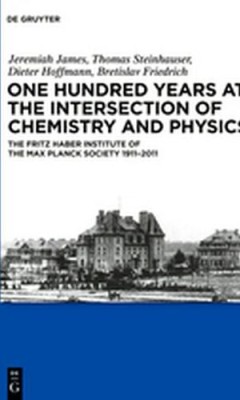
One Hundred Years at the Intersection of Chemistry and Physics
This volume, occasioned by the centenary of the Fritz Haber Institute, formerly the Institute for Physical Chemistry and Electrochemistry, covers the institute's scientific and institutional history from its founding until the present. The institute was among the earliest established by the Kaiser Wilhelm Society, and its inauguration was one of the first steps in the development of Berlin-Dahl…
- Edition
- -
- ISBN/ISSN
- 9783110239539
- Collation
- -
- Series Title
- -
- Call Number
- -

Wallenstein
" By the time Frederich Schiller came to write the Wallenstein trilogy, his reputation as one of Germany’s leading playwrights was all but secured. Consisting of Wallenstein’s Camp, The Piccolomini and The Death of Wallenstein, this suite of plays appeared between 1798 and 1799, each production under the original direction of Schiller’s collaborator and mentor, Johann Wolfgang (von) Goeth…
- Edition
- -
- ISBN/ISSN
- 9781783742653
- Collation
- -
- Series Title
- -
- Call Number
- -

Wallenstein
By the time Frederich Schiller came to write the Wallenstein trilogy, his reputation as one of Germany’s leading playwrights was all but secured. Consisting of Wallenstein’s Camp, The Piccolomini and The Death of Wallenstein, this suite of plays appeared between 1798 and 1799, each production under the original direction of Schiller’s collaborator and mentor, Johann Wolfgang (von) Goethe.…
- Edition
- -
- ISBN/ISSN
- 9781783742653
- Collation
- -
- Series Title
- -
- Call Number
- 792 SCH w
 Computer Science, Information & General Works
Computer Science, Information & General Works  Philosophy & Psychology
Philosophy & Psychology  Religion
Religion  Social Sciences
Social Sciences  Language
Language  Pure Science
Pure Science  Applied Sciences
Applied Sciences  Art & Recreation
Art & Recreation  Literature
Literature  History & Geography
History & Geography